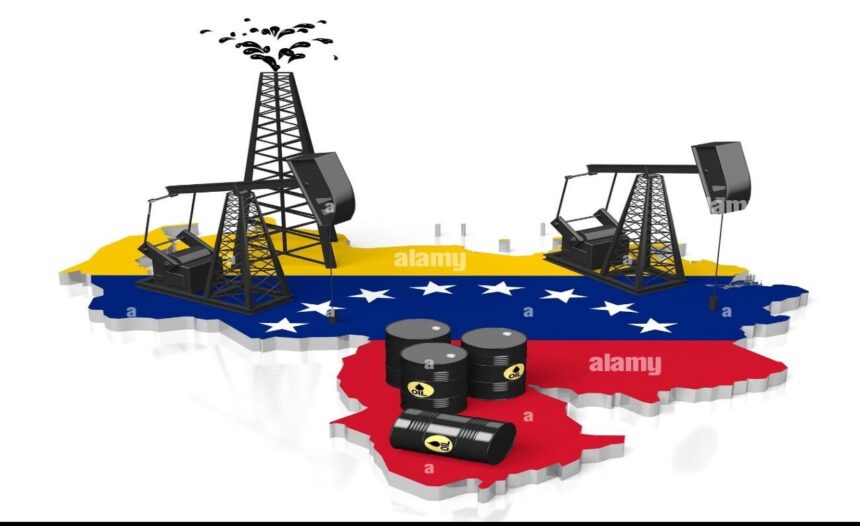
Written by:
AKM SAYEDAD HOSSAIN
Executive Director
National Institute of Global Studies (NIGS),
A Bangladesh-based think tank
https://nationalinstituteofglobalstudies.com
Venezuela, once a prosperous nation fueled by its vast oil reserves, is now grappling with the devastating economic consequences of what economists call the Dutch disease. This phenomenon, which typically occurs when a country’s economy becomes overly reliant on a single commodity, has led to the collapse of Venezuela’s broader economic structures. As Bangladesh continues to strengthen its economic position in the global market, it is crucial to understand the lessons from Venezuela’s struggles and adopt measures to avoid falling into the same trap.
What Is Dutch Disease?
The term Dutch disease was coined in the 1970s after the Netherlands experienced severe economic downturns following the discovery of large natural gas reserves in the North Sea. While the discovery initially boosted the country’s economy, it led to a dramatic appreciation of the Dutch guilder, making the nation’s other exports, such as agricultural products and manufacturing goods, less competitive internationally. This dependency on a single resource sector led to the weakening of other industries, resulting in an overall decline in the country’s economic diversity.
In Venezuela, oil is the lifeblood of the economy, accounting for over 90% of the country’s exports. When global oil prices were high, Venezuela’s economy soared. However, the subsequent drop in oil prices, coupled with mismanagement and political instability, has caused a sharp decline in the nation’s financial standing, contributing to hyperinflation, a collapse of the healthcare and education systems, and mass emigration. The Venezuelan government’s over-reliance on oil exports has not allowed the economy to diversify, and the country now faces severe challenges in reviving other sectors like agriculture, manufacturing, and tourism.
How Venezuelan Economy Fell Victim to Dutch Disease
Venezuela’s case is a textbook example of the destructive consequences of Dutch disease:
- Oil Dependency: Venezuela’s over-reliance on oil exports has rendered its economy vulnerable to global price fluctuations. When oil prices dropped, the country faced severe revenue shortfalls, making it difficult to finance other sectors like infrastructure, education, and social welfare.
- Currency Appreciation: The influx of oil revenue caused the Bolivar (Venezuela’s currency) to appreciate, which made other sectors uncompetitive. Manufacturing and agriculture struggled to compete with imports, weakening Venezuela’s industrial base.
- Decline in Non-Oil Sectors: As Venezuela’s economy became more oil-centric, non-oil industries such as agriculture, mining, and manufacturing saw diminished investments. The neglect of these sectors left the country with a lopsided economy reliant on a volatile commodity.
- Political Instability and Economic Mismanagement: Alongside the economic effects of Dutch disease, Venezuela’s government mismanaged the oil wealth, diverting funds into populist policies and inefficient state-run industries. This lack of sound fiscal management exacerbated the effects of Dutch disease, creating an economic crisis.
How Bangladesh Can Avoid Dutch Disease
While Bangladesh’s economy is vastly different from Venezuela’s, it faces its own set of challenges, particularly the growing reliance on a few key export sectors such as ready-made garments (RMG) and remittances. However, Bangladesh can take proactive measures to avoid the pitfalls of Dutch disease and create a more resilient and diversified economy.
- Diversification of the Economy:
- RMG Dependence: While the RMG sector has been a major contributor to Bangladesh’s economic growth, the country should focus on diversifying its export base. This can be achieved by promoting sectors such as technology, agriculture, pharmaceuticals, and services, creating a robust multi-sector export portfolio.
- Investment in Emerging Sectors: Bangladesh should encourage investment in technology, renewable energy, and manufacturing. The government can foster innovation through public-private partnerships and targeted policies aimed at promoting industries beyond textiles and garments.
- Strengthening the Agricultural Sector:
- Modernization of Agriculture: Bangladesh can invest in modernizing its agricultural practices and increasing agricultural exports, reducing the over-reliance on remittances and RMG exports. Improving irrigation systems, introducing advanced technology, and focusing on food security will help strengthen this vital sector.
- Agro-processing: By investing in agro-processing industries, Bangladesh can add value to its agricultural products and create jobs, driving sustainable growth in rural areas and reducing dependency on a single sector.
- Enhancing Human Capital Development:
- Education and Skill Development: Bangladesh needs to invest heavily in education and vocational training to develop a skilled workforce capable of thriving in diverse industries. By improving education outcomes, especially in fields such as science, technology, and engineering, Bangladesh can build a knowledge-based economy that can adapt to global trends.
- Fostering Innovation: Encouraging research and development (R&D) and entrepreneurship will stimulate innovation and reduce dependency on traditional industries. The government should incentivize the private sector to invest in R&D and build a thriving startup ecosystem.
- Macroeconomic Stability and Fiscal Management:
- Prudent Fiscal Policy: Effective management of fiscal policies is critical for maintaining economic stability. Bangladesh needs to ensure that foreign exchange reserves are carefully managed, and that the currency does not appreciate excessively due to an influx of foreign earnings, particularly from remittances.
- Attracting Foreign Investment: Bangladesh can strengthen its investment climate by reducing bureaucratic hurdles and improving ease of doing business. With greater foreign direct investment (FDI), the country can promote sectors that have the potential to drive growth beyond the garments industry.
- Developing Infrastructure and Energy:
- Infrastructure Development: Improved infrastructure will support industrial growth across all sectors, not just those reliant on export markets. This includes developing ports, transport systems, and communications networks, which will make Bangladesh more competitive on the global stage.
- Energy Security: Bangladesh should also focus on developing renewable energy sources to reduce dependence on imported energy. By fostering energy independence, the country can avoid external shocks that can affect the price competitiveness of its exports.
- Focus on Sustainable Growth:
- Environmental Considerations: Bangladesh should aim for green and sustainable growth models, ensuring that industrialization does not come at the cost of environmental degradation. This approach will safeguard the country’s long-term economic and ecological health.
While Bangladesh has made significant strides in its economic development, especially in the garment sector, it must learn from the mistakes of countries like Venezuela to avoid falling victim to Dutch disease. By diversifying its economy, investing in emerging sectors, strengthening its agricultural base, and fostering a skilled workforce, Bangladesh can build a resilient, balanced economy. With a comprehensive strategy to avoid the pitfalls of over-reliance on a single sector, Bangladesh can continue its path toward sustainable economic growth and prosperity.






